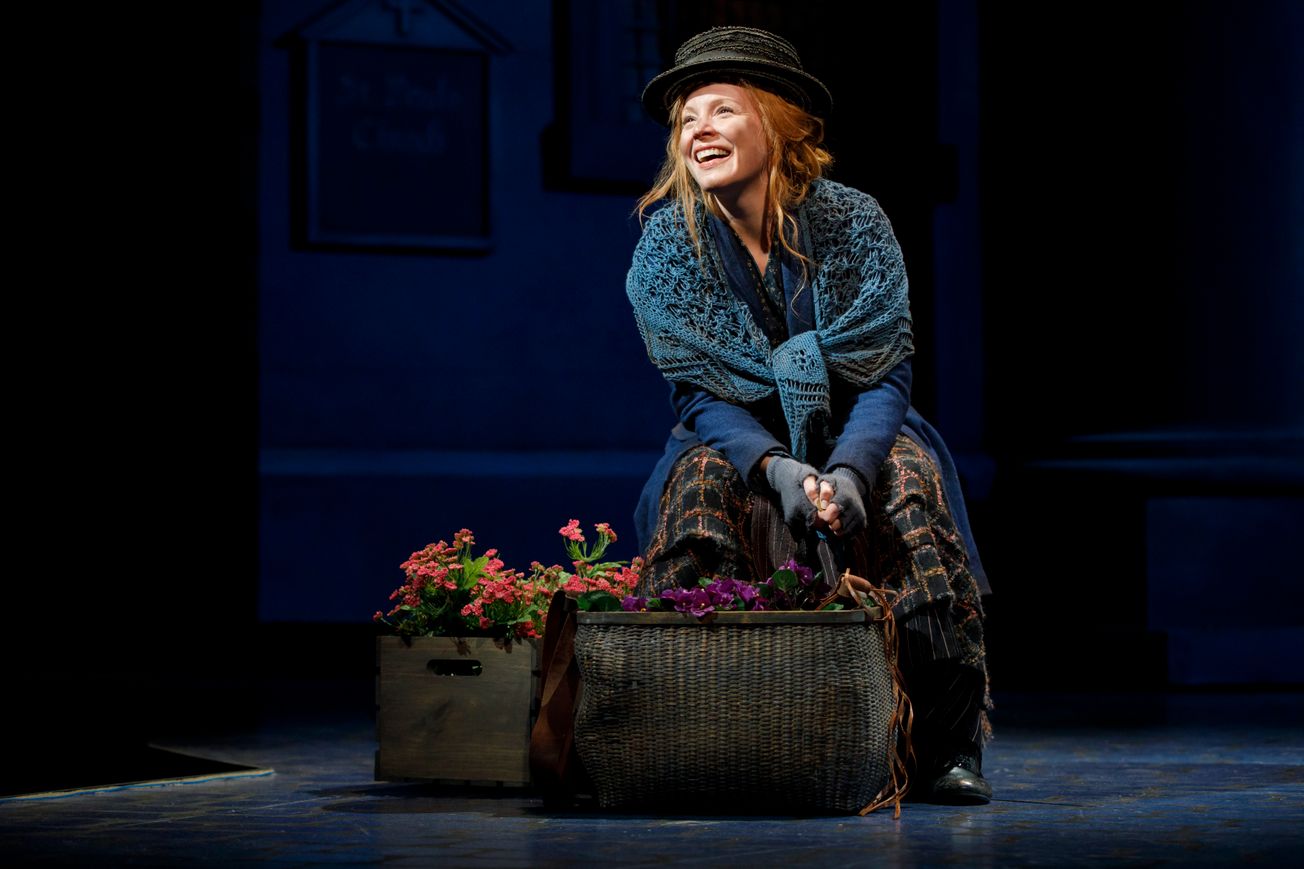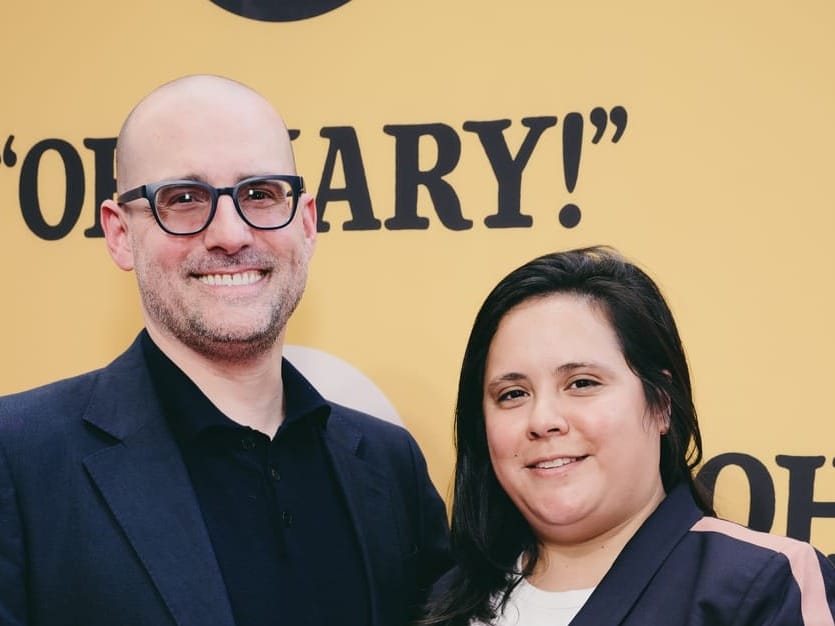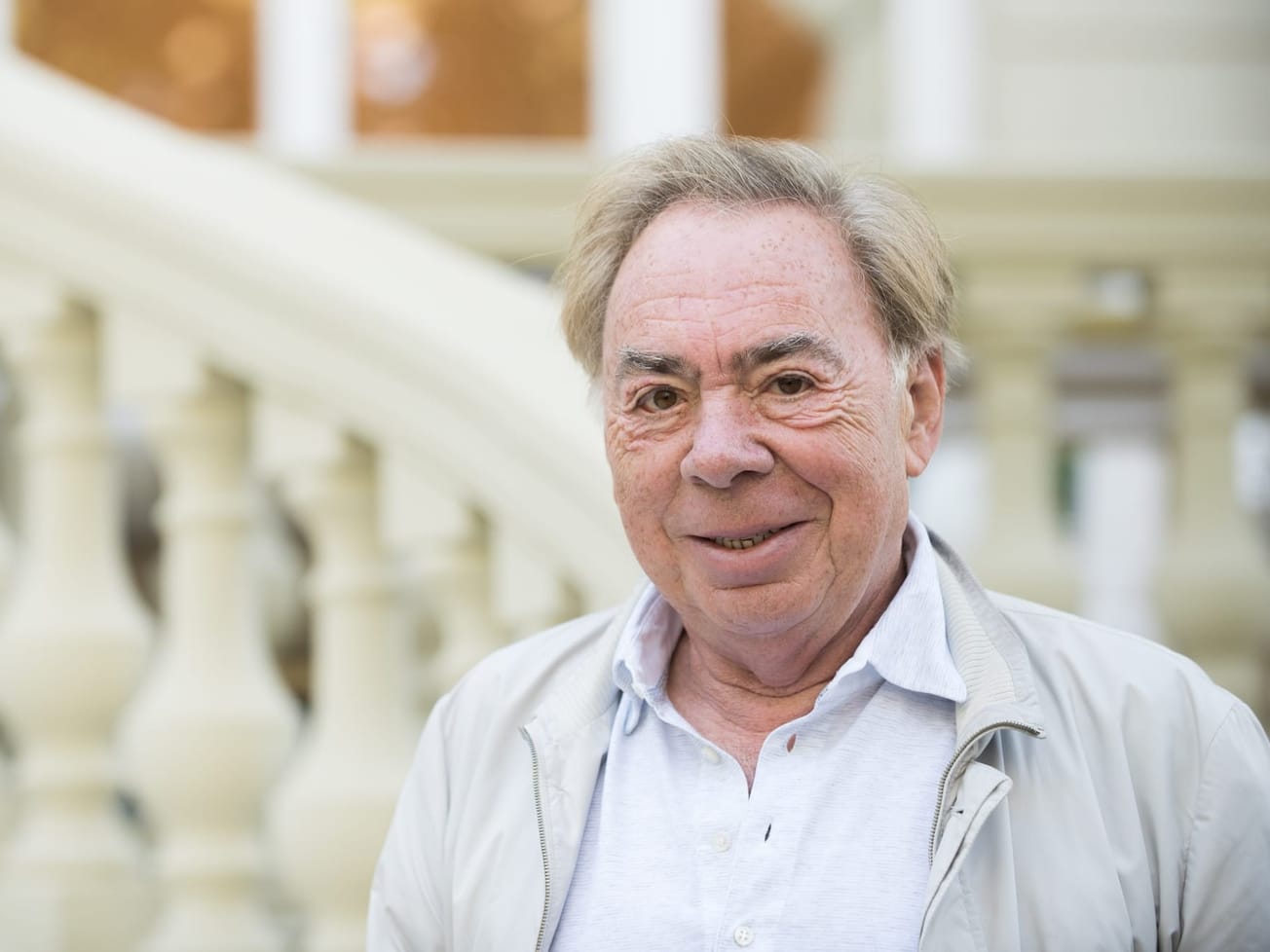Director Bartlett Sher has not changed the ending of “My Fair Lady.”
Rather he says he has “interpreted” the ending in a manner that Bernard Shaw, who wrote the source material the musical is based on, would approve. This interpretation, which appears to set Eliza Doolittle on a path to her own life and thus gives her more agency, is also one that the estate of the lyricist and librettist Alan Jay Lerner and the foundation of composer Frederick Loewe approve of and were looking for when they set out to revive the musical this year.
The ending of the Lincoln Center Theater production does not add or omit any lines, but — spoilers ahead — sees Eliza walk offstage after tenderly patting Higgins on the cheek. Sher won’t go as far to say that Eliza walks out on Higgins, nor that she will never talk to him again, but rather that she is now free to pursue her own path.
“I see it as her going into the future,” Sher said.
And in fact, the musical’s book does not specify exactly what should happen when Eliza returns to the home of Henry Higgins just after a heated argument in which she says she would never marry him.
“The most we get is that Higgins says ‘Where are my slippers?’ and the curtain comes down,” said Loren Plotkin, the trustee of Lerner’s estate.
The intent in both Shaw’s “Pygmalion” and the book of the musical was to leave the ending ambiguous, however, previous versions of “My Fair Lady” have romanticized the final scene with some ending in a kiss between Eliza and Higgins.
Sher arrived at his ending during the rehearsal process for the musical. He felt that she would not be able to stay as he saw the story through the lens of a self-actualization narrative, in which Eliza is able to use her new accent to transcend class status. That idea influenced his direction of the rest of the musical.
“I did consciously follow her in the story,” Sher said.
Speaking at a press event following the show’s 10 Tony Award nominations, Lauren Ambrose, who was nominated for her portrayal of Eliza, said she feels the ending puts her character on equal footing with her teacher.
“What was the most important thing to me as an actor is that Eliza and Higgins by the end of the play have an equality, and that is the essence of the Shaw,” Ambrose said.
As Sher found in his research, Shaw himself fought against any endings that included Eliza ending up with Higgins.
Plotkin and Emily Altman, president of the foundation for Frederick Loewe, who wrote the music for “My Fair Lady,” met with Sher about a month before rehearsals began for the Broadway production to go line-by-line over the libretto. In addition to approving other changes, including moving the act break one scene earlier and cutting some lines, Plotkin said he found Sher’s interpretation of the ending to be “true to the spirit” of both Lerner and Shaw’s texts.
And it fit with what both the Lerner Trust and the Loewe Foundation had wanted in a revival. The two parties had “made it known” that they wanted a revival of the musical, as there had not been one in about 25 years, and met with producers on both the West End and in New York.
In the end, they chose Lincoln Center Theater because they felt the organization would be responsible with the piece in an era where the story of a man denigrating his female pupil could raise some alarm.
“We thought that we would get the best revival of ‘My Fair Lady’ and one that would be sensitive to the original work and also sensitive to the present,” Plotkin said.
Though Cindi Stuart, a doctor from Dallas, has seen regional and local productions of the show 30 to 40 times, as well as countless viewings of the film, she said she never understood how Eliza could end up with Higgins. So, when she saw the Lincoln Center production in previews, she felt the ending was a fitting, yet open-ended, conclusion to Eliza’s independence story.
“The fact that she walked away in the end is just so timely and perfect for #MeToo,” Stuart said. “I think it was perfect for her character too.”
Critics were also largely positive about the ending — as were the 19 family members of Lerner who attended opening night, according to Plotkin — but Sher said he has heard pushback from some audience members. However, he says he welcomes the dialogue.
“The fact that they’re discussing it is more important to me than if I’m right,” Sher said.


























































